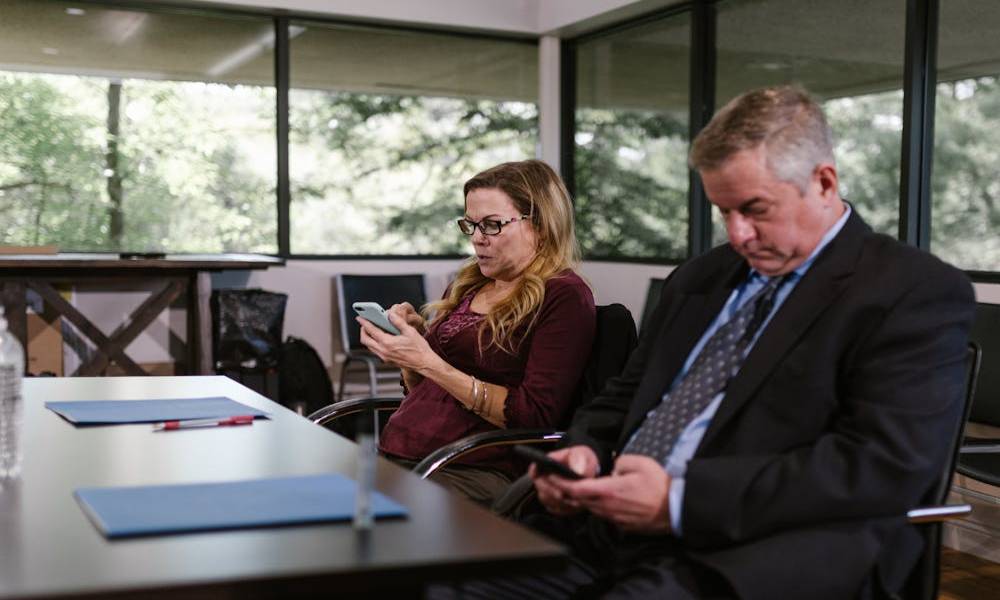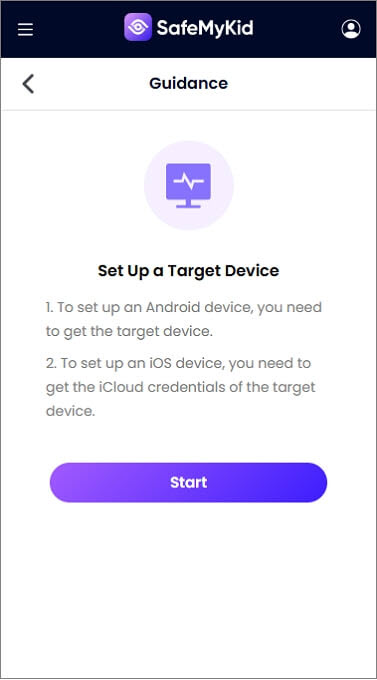When Someone Accuses You of Cheating, Are They Cheating? Signs & Insights

When someone accuses you of cheating, are they cheating? This question often emerges in relationships plagued by fragile trust and heightened insecurities.

Could the person accusing you actually be the one engaging in deceitful behavior? This article explores the psychology behind such accusations and examines whether they might reflect the accuser's own actions or insecurities.
What Does It Mean When You Are Being Accused Of Cheating

Being accused of cheating can have various meanings depending on the context and the dynamics of the relationship. Here are some possible interpretations:
- Lack of Trust: The accusation may indicate a lack of trust in the relationship. This could stem from past experiences, insecurities, or unresolved issues between you and your partner.
- Projection: Sometimes, the accuser might be projecting their own behavior onto you. If they are guilty of cheating or deceit, they might accuse you to deflect attention from their actions.
- Insecurity: The accusation could be a sign of personal insecurities. Your partner might feel inadequate or fearful of losing you, leading them to suspect infidelity without concrete evidence.
- Miscommunication: Misunderstandings or miscommunications can also lead to false accusations. Something you said or did might have been misinterpreted, causing unnecessary suspicion.
- Control or Manipulation: In some cases, accusations of cheating can be a form of control or manipulation. The accuser might use these accusations to exert power over you or to keep you in check.
- Past Trauma: If your partner has been cheated on in the past, they might be more prone to suspect infidelity in their current relationship, even if there is no valid reason.
- Attention-Seeking: Sometimes, accusations can be a cry for attention. Your partner might feel neglected and use the accusation as a way to draw your focus back to them.
When accused of cheating, stay calm and consider if their suspicion stems from insecurities, past trauma, or projection of their own guilt. Open communication can help uncover the root cause and address trust issues.
Open communication is key to understanding their perspective, addressing any trust issues, and determining whether the accusation is a sign of deeper problems in the relationship or a reflection of their own behavior.
Signs That Your Partner May Be Projecting Their Own Infidelity
When someone accuses you of cheating, it’s natural to wonder if their accusations are a reflection of their own behavior. In some cases, projection—a psychological defense mechanism—may be at play. Here are some key signs that your partner may be accusing you to cover up their own infidelity:
- They Suddenly Become Overly Jealous
- They’re Extremely Secretive About Their Phone
- They Accuse You Without Any Real Proof
- They Become Emotionally Distant
- They Get Defensive When Asked About Their Behavior
If your partner was previously secure but suddenly starts accusing you of being unfaithful, it might be a red flag. Cheaters often assume others are capable of the same betrayal they’re committing.
Do they hide their phone, change passwords, or suddenly take calls in private? If they accuse you of cheating while guarding their own communication, it could be a sign they have something to hide.
A partner who repeatedly accuses you of cheating—despite no evidence—may be deflecting guilt. They might be trying to normalize dishonesty or make you feel guilty to avoid scrutiny.
If they’re less affectionate, avoid deep conversations, or seem disconnected, it might indicate that their attention is elsewhere. A shift in emotional availability can be a warning sign of infidelity.
If you question their whereabouts or actions and they react with extreme defensiveness or anger, they could be trying to throw you off. A guilty conscience often leads to overreactions.
6 Techniques To Handle Being Accused Of Cheating While You Are Innocent

Being accused of cheating when you’re innocent can be emotionally draining and challenging to navigate. However, by employing specific techniques, you can address the situation constructively and work toward resolving the underlying issues.
Here’s a detailed explanation of six strategies to handle such accusations effectively:
1. Understand Their Definition of Cheating
The first step is to understand what your partner considers cheating. People have different boundaries and interpretations of infidelity. For some, emotional connections with others might feel like betrayal, while others may only view physical acts as cheating.
By having an open conversation about their definition, you can gain insight into their concerns and address them more effectively. This understanding also helps you avoid unintentional actions that might trigger their suspicions in the future.
2. Clarify
Misunderstandings often fuel accusations. If your partner accuses you of cheating, take the time to calmly clarify the situation. Explain your actions, intentions, and the context behind any behavior that may have been misinterpreted.
For example, if they’re upset about a text message or a late-night work meeting, provide the necessary details to clear up any confusion. Avoid being defensive, as this can escalate tensions. Instead, focus on fostering open and honest communication.
3. Don’t Feed the Beast
When faced with false accusations, it’s natural to feel hurt or angry. However, reacting defensively or lashing out can worsen the situation. Avoid “feeding the beast” by engaging in arguments or retaliating with accusations of your own.
Instead, remain calm and composed. By staying level-headed, you can prevent the conflict from escalating and create a space for constructive dialogue. Remember, your goal is to resolve the issue, not to win an argument.
4. Trust
Trust is the foundation of any healthy relationship. If your partner accuses you of cheating, it may indicate a breakdown in trust. Reassure them of your commitment and loyalty.
Acknowledge their feelings without dismissing them, and emphasize your dedication to the relationship.
Rebuilding trust takes time, so be patient and consistent in your actions. Over time, your honesty and reliability can help restore their confidence in you.
5. Be Considerate
Accusations of cheating often stem from deep-seated insecurities or past experiences. Try to empathize with your partner’s feelings and understand where their suspicions are coming from. Are they projecting past trauma?
Do they feel neglected or insecure in the relationship? By being considerate of their emotions, you can address the root cause of their accusations rather than just the surface-level issue. Showing compassion and patience can go a long way in easing their fears.
6. Be Transparent
Transparency is key to dispelling doubts and rebuilding trust. Be open about your actions, whereabouts, and interactions with others. If your partner has concerns about a specific situation, willingly provide the information they need to feel reassured.
For instance, if they’re concerned about a coworker, offer transparency by introducing them or explaining the professional relationship, but maintain healthy boundaries to prevent controlling behavior.
How To Confirm When Someone Accuses You Of Cheating Using the SafeMyKid?
When Someone Accuses You of Cheating, Are They Cheating? This question can be addressed effectively using the SafeMyKid App, an approved tool designed to provide clarity and transparency in relationships.

The app offers features to monitor and verify activities, helping you understand whether accusations stem from genuine concerns or potential projections.
By tracking communication patterns and gaining insights into behavior, the SafeMyKid App ensures accountability and fosters trust, allowing you to navigate such challenges with confidence and peace of mind.
Key Features of SafeMyKid Cheating Detector
- Login Activity Monitoring – This feature tracks Instagram login attempts and detects unauthorized access, helping you determine if the accuser’s behavior is suspicious.
- App & Web Restrictions – This tool blocks access to suspicious apps or websites, ensuring no compromising activities are taking place on either side.
- Suspicious Login Alerts – Real-time notifications for unusual login attempts or password changes provide clarity on potential deceitful actions by the accuser.
- Message & Call Oversight – Monitoring conversations for security threats or phishing attempts offers insights into whether the accusations are grounded in reality.
- Screen Time Management – Limiting device usage prevents excessive social media exposure, reducing opportunities for misunderstandings or hidden activities.
- Real-Time Location Tracking – GPS tracking ensures transparency about device activity, addressing concerns about the accuser’s or your whereabouts.
- Geofencing Notifications – Alerts for when a device enters or leaves a designated safe zone help verify the accuser’s claims or actions.
- Stealth Monitoring Mode – This discreet feature detects unauthorized Instagram access, revealing if the accuser is engaging in questionable behavior.
- Detailed Security Reports – Insights into Instagram login patterns and potential hacking attempts provide evidence to address accusations effectively.
How To Use SafeMyKid To Catch A Cheater
When someone accuses you of cheating, are they cheating? SafeMyKid is designed to enhance security and prevent unauthorized access to Instagram accounts, helping you address such concerns effectively.
Here’s how you can use it to monitor activity, verify claims, and ensure transparency in your relationships.
Step 1. Sign Up for an Account
Use your email address to create an account on the SafeMyKid website. You will get access to the app's dashboard once you have finished the enrollment process.

Step 2. Set Up the App
For iPhones: No installation is required; simply log in with the iCloud credentials associated with the target device.
For Android devices, install the app on the intended device. It will then function covertly in stealth mode.

Step 3. Use Safemykid To Chatch A Cheater
This powerful tool helps you monitor suspicious activities and ensure transparency in relationships, providing clarity when trust is in question.

FAQs regarding when someone accuses you of cheating are they cheating
Navigating accusations of cheating can be challenging, but understanding the dynamics behind such claims can help clarify the situation.
Here are some frequently asked questions to shed light on this complex issue:
1. Why would someone accuse me of cheating if they’re the ones cheating?
Accusations can sometimes be a form of projection, where the accuser deflects their own guilt or insecurities onto you. They may be trying to shift focus away from their actions.
2. How can I tell if the accusation is a sign of their own infidelity?
Look for patterns of suspicious behavior, such as secrecy, changes in routine, or defensive reactions when questioned. Tools like SafeMyKid can help monitor and verify such activities.
3. What should I do if I’m falsely accused of cheating?
Stay calm, communicate openly, and provide clarity about your actions. Use tools like SafeMyKid to demonstrate transparency and address their concerns responsibly.
4. Can insecurity lead to false accusations of cheating?
Yes, insecurities or past traumas can cause someone to misinterpret actions or behaviors, leading to unfounded accusations. Understanding their perspective can help address the root cause.
5. How can SafeMyKid help in this situation?
SafeMyKid offers features like login activity monitoring, suspicious login alerts, and message oversight, which can help verify whether accusations are based on genuine concerns or unfounded suspicions.
Conclusion
When someone accuses you of cheating, are they cheating? Navigating such accusations requires patience, transparency, and understanding.
By using tools like SafeMyKid and fostering open communication, you can address concerns responsibly and work toward rebuilding trust in your relationship.


